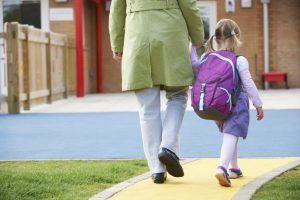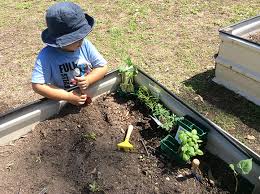 “You’re going to sit at that table until you eat all your broccoli” might be one approach to get a picky eater to finish their vegetables, but it’s not a good one. There are other simple and less antagonistic ways to encourage your little one to eat veggies and similar healthy foods.
“You’re going to sit at that table until you eat all your broccoli” might be one approach to get a picky eater to finish their vegetables, but it’s not a good one. There are other simple and less antagonistic ways to encourage your little one to eat veggies and similar healthy foods.
Establishing healthy eating habits with your child, including getting them to eat vegetables, will set them up for wellbeing over the long term. Sustainability in childcare, much like that practiced at preschools such as Bartram Academy, for example, includes a focus on healthy eating with meals made from fresh and sustainable ingredients. Here are a few tips to help your youngsters adapt to meals of that type when they attend preschool.
At mealtime, serve the vegetables first. In that way, hungry children are more apt to eat them right away.
Use vegetables as healthy snacks. Cutting them into fun shapes also helps encourage children to eat. Who wouldn’t want to bite into a dinosaur?
Vegetables and fruits make great breakfast foods, as well. It’s not just time for cereal, toast, and pancakes.
Teaching your children where food comes from, and letting them help with preparation gives them a greater appreciation of their meals.
Take the time to share meals together. It’s a great way to encourage healthy eating habits.












